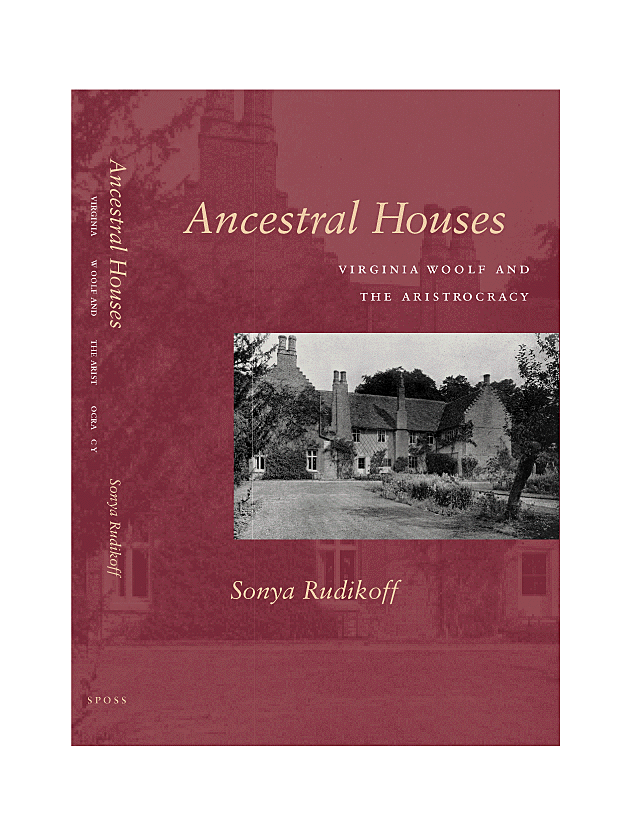
![]()
"One of Virginia Woolf's most intense preoccupations was social life, and particularly its higher reaches. Sonya Rudikoff has written a fascinating study that explores Woolf's interests in old families and old houses, and the implications of her involvement in such questions. (She rather teased herself on this topic in her essay "Am I A Snob?") This mandarin aspect of Woolf, such an important part of her character, is comparatively neglected in recent Woolf studies. Sonya Rudikoff has produced a book that is compulsively readable and sheds fresh light on Virginia Woolf, her writings, and her life. Written with great erudition and wit, this book is a considerable addition to Woolf studies."
—Peter Stansky, Stanford University
"Another book on Virginia Woolf? Yes, and despite all the others, a quite original one at that! Sonya Rudikoff explores Virginia Woolf's imaginative romance with the world of the English aristocracy, living in their ancestral houses, as no one has ever done before. Her investigation of the dense network of personal relations that nourished Woolf's complex social vision is unmatched in its depth, and is conveyed in a finely expressive prose. The book is an excellent contribution both to Woolf studies and to social history."
—Joseph Frank, Princeton University
"I want coronets," wrote Virginia Woolf in her 1936 essay "Am I A Snob?"; but they must be old coronets that carry land with them and country houses; coronets that breed simplicity, eccentricity, ease." Here examined for the first time in a superbly documented account is Woolf's fascination with the English aristocracy: her admiration and envy of, and disdain for, the members of the "great world." Self-described as a feminist, even a socialist, the middle-class Woolf nonetheless maintained a lifelong interest in aristocrats, recording her feelings and observations in numerous letters and diary entries.
Virginia Woolf's interest in the aristocracy, and what must be called her snobbery, seem incongruous with her later profoundly creative activity in the literary avant-garde of the Bloomsbury group. It is this contradiction, and its representations in her novels, essays, and life that Rudikoff explores. She examines not only Woolf's encounters with specific aristocrats, but also her friendship with members of the old gentry, and the role of property, heritage, class, and social attitudes. Late Victorian social networks linking church, university, parliament, and court provide texture for the discussion, and it is the "ancestral houses" of the aristocracy and gentry that provide the rich and symbolic setting.
Sonya Rudikoff (1927–1997) was a prolific writer, essayist, and independent Woolf scholar who over a period of forty-seven years contributed articles and reviews to The Partisan Review, The Hudson Review, Commentary, The New Criterion, and other literary and political journals. She was for twenty years an advisory editor of The Hudson Review. Ms. Rudikoff was a recipient of fellowships from the Rockefeller Foundation and National Endowment for the Humanities, and she served as a judge of the National Book Awards and the Bennett Award. She resided with her husband in Princeton, New Jersey, and had two children. This book was completed shortly before her death.
328 pages, illustrated. 1999.
ISBN 0-930664-18-3